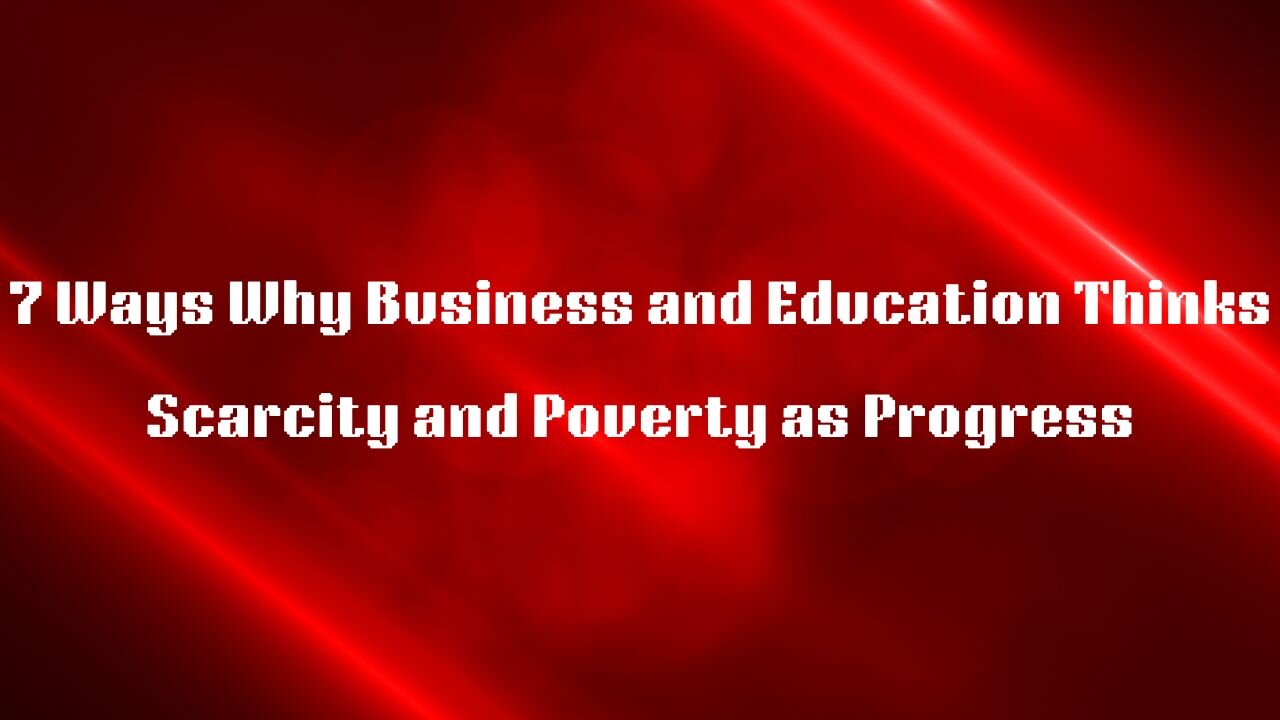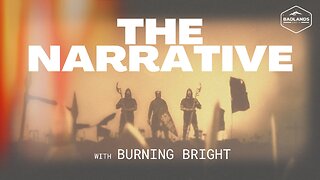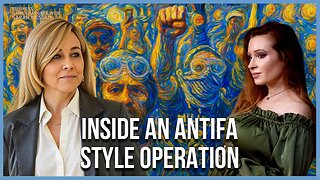Premium Only Content

7 Ways Why Business and Education Thinks Scarcity and Poverty as Prograss
7 Ways Why Business and Education Thinks Scarcity and Poverty as Progress
1. Progress is measured in profit—never in people. Business systems chase expansion while ignoring the erosion of well-being. The hourly worker becomes invisible in the spreadsheet of success.
2. Education teaches obedience—never liberation. College molds minds to fit systems, not free them. Memorization replaces imagination, and clarity is sacrificed for conformity.
3. Scarcity is institutionalized—struggle is glorified. Both systems embed lack as a virtue. Poverty is reframed as productivity, and suffering becomes the standard of achievement.
4. Titles replace trust—credentials become control. MBA degrees and corporate hierarchies sell worth through external validation, tethering minds to approval loops instead of inner wisdom.
5. Tax breaks feed corporations—while people fund the system. The wealth flows upward, but the burden remains with the people. Business thrives on public infrastructure yet forgets its human foundation.
6. False hope is marketed as motivation. Self-help gurus and business coaches sell the illusion of prosperity, while masking systemic deprivation as personal growth.
7. Management leads from assumption—never alignment. Without immersive experience, authority becomes disconnected. Oversight replaces insight, and friction is misread as failure instead of innovation.
8. Sovereignty isn’t earned—it’s remembered. Systems teach you to chase worth, but your essence already pulses with value. The journey isn’t upward—it’s inward.
9. Canny wisdom listens beyond logic—truth arrives as a whisper, not a rule. The clever mind calculates; the sovereign soul recognizes. Insight isn’t found—it’s felt
-
 26:33
26:33
DeVory Darkins
1 day ago $60.77 earnedRep Omar EMBARRASSES herself in a painful way as Newsom PANICS over Kamala confrontation
120K337 -
 3:28:14
3:28:14
Badlands Media
1 day agoThe Narrative Ep. 39: The Sovereign Mind
133K43 -
 2:17:35
2:17:35
TheSaltyCracker
14 hours agoThe Charlie Kirk Effect ReeEEStream 9-21-25
166K406 -
 2:03:07
2:03:07
vivafrei
13 hours agoEp. 283: Charlie Kirk Memorial and other Stuff in the Law World
247K233 -
 9:13:12
9:13:12
The Charlie Kirk Show
1 day agoLIVE NOW: Building A Legacy, Remembering Charlie Kirk
2.23M1K -
 1:55:20
1:55:20
The White House
17 hours agoPresident Trump Participates in the Memorial Service for Charlie Kirk
138K97 -
 1:02:41
1:02:41
Sarah Westall
15 hours agoDomestic Terror Operation: Death Threats, Smear Campaigns, Gang Stalking w/ Journalist Sarah Fields
86K14 -
 1:51:40
1:51:40
Nerdrotic
16 hours ago $27.31 earnedGobekli Tepe Discovery and "Reconstruction" | Forbidden Frontier #118
124K21 -
 29:07
29:07
Tactical Advisor
16 hours agoATF Changes Ruling on SBR & Tacpack unboxing | Vault Room Live Stream 039
116K24 -
 2:00
2:00
From Zero → Viral with AI
21 hours ago $7.01 earnedAre You Being Left Behind? Why AI Marketing is No Longer Optional
64.8K11